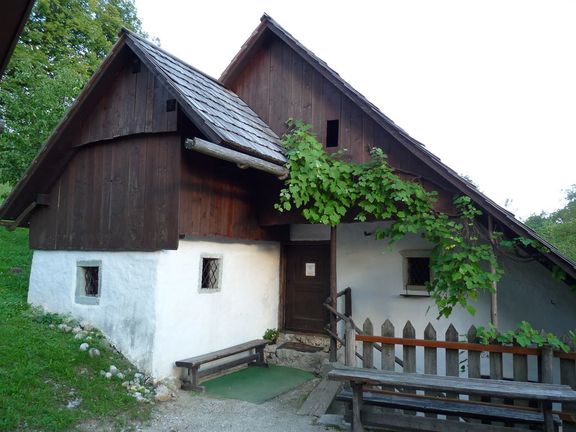Difference between revisions of "Birthplace of Fran Saleški Finžgar"
(imported from XML by extractor/importer) |
m (Text replace - "{{Abstract" to "{{Teaser") |
||
| Line 20: | Line 20: | ||
}} | }} | ||
| − | {{ | + | {{Teaser| |
The Doslovče village house in which priest, writer and playwright Franc Saleški Finžgar (1871-1962) was born was reconstructed and opened as a museum in 1971. The house incorporates an open-hearth kitchen (the so-called 'black kitchen'), a larder, a 'hiša' and other rooms which reflect the humble conditions in which a rural smallholder once lived. In the cellars there is a permanent exhibition on Finžgar's opus, which includes Naša kri ('Our Blood'), Veriga ('Chain'), Razvalina življenja ('Ruined Life') and the acclaimed historical novel Pod svobodnim soncem ('Under the Free Sun'). | The Doslovče village house in which priest, writer and playwright Franc Saleški Finžgar (1871-1962) was born was reconstructed and opened as a museum in 1971. The house incorporates an open-hearth kitchen (the so-called 'black kitchen'), a larder, a 'hiša' and other rooms which reflect the humble conditions in which a rural smallholder once lived. In the cellars there is a permanent exhibition on Finžgar's opus, which includes Naša kri ('Our Blood'), Veriga ('Chain'), Razvalina življenja ('Ruined Life') and the acclaimed historical novel Pod svobodnim soncem ('Under the Free Sun'). | ||
}} | }} | ||
Revision as of 03:58, 26 November 2009
The original house in Doslovče was expanded by the writer’s grandfather, Joseph Ažman, near the end of the 18th or the beginning of the 19th century. The wooden walls were laid with planks, plastered and painted, and above the window the year 1849 was engraved.



